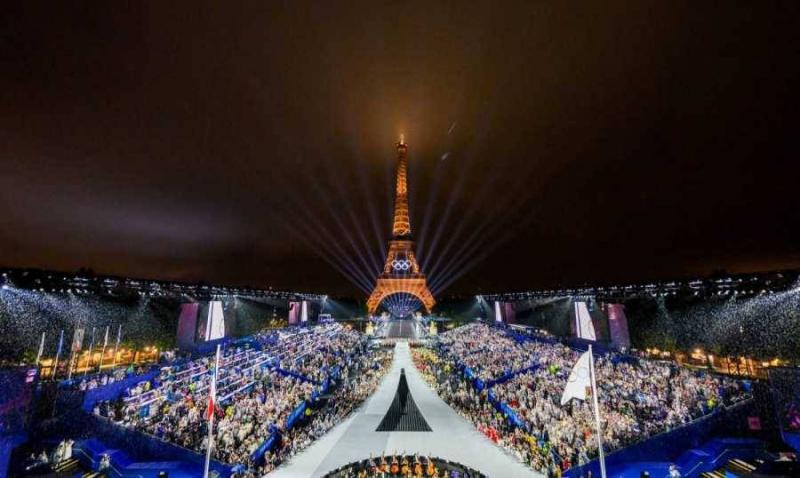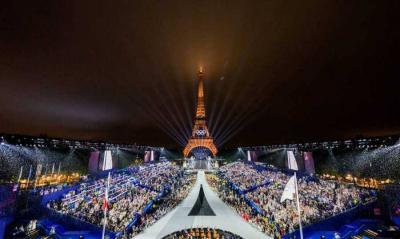With the start of the 2024 Olympics in Paris, athletes from two countries will compete without a national title, flag, or anthem. Instead, they will be referred to as "AIN," meaning "Neutral Individual Athletes," according to CBS News. Athletes from Russia, which has been banned from competing as a country since 2017 for the fourth consecutive time, will compete under the banner known as neutral individual athletes, or "AIN" in French. They will be joined by athletes from Belarus, which has also been prohibited from participating as a country for the first time. Both countries were banned due to their involvement in the ongoing war in Ukraine.
Previously, Russian athletes were allowed to compete under the Russian Olympic Committee, or "ROC," which appeared for the last time during the Tokyo 2020 Olympics. They were permitted to compete under this banner after a series of scandals limited their ability to participate in the games, but this has changed for the Paris Games.
What do "ROC" and "AIN" mean?
ROC refers to the Russian Olympic Committee as mentioned. Since Russia faced a ban from competitions, first due to a series of doping scandals and then due to its invasion of Ukraine, Russian athletes have competed under different alternatives to their country's name. In the last Summer Olympics held in Tokyo, Russian athletes competed under the "Russian Olympic Committee" instead of the Russian flag. In the Paris Olympics, Russian and Belarusian athletes will compete under the banner of "Neutral Individual Athletes," referred to as AIN from the French term "Athlètes Individuels Neutres." There will be significantly fewer competitors from both countries compared to previous games.
Why was Russia banned from the Olympics?
Olympic athletes from Russia have faced a series of scandals and challenges in recent years. While previous bans and suspensions were linked to doping scandals, the International Olympic Committee (IOC) banned Russia due to its invasion of Ukraine. The scandal of Russian athletes using illegal drugs to enhance performance came to light in 2015 after a series of leaks and investigations. In November 2015, the Russian track and field team was suspended after an investigation by the World Anti-Doping Agency uncovered what it called a "culture of cheating." A report by the World Anti-Doping Agency in 2016 identified over a thousand individuals linked to a state-sponsored doping scheme in Russia between 2011 and 2014. Some individual athletes won medals, including gold medals, at the 2014 Winter Olympics held in Sochi, Russia. The report described the doping scheme as an "institutional conspiracy" backed by the Russian intelligence agency. The IOC banned Russia in 2017 due to the scheme but allowed individual athletes the opportunity to apply for eligibility to compete as "Olympic Athletes from Russia."
What distinguishes competition as neutral athletes?
According to IOC guidelines, "qualified athletes holding a Russian or Belarusian passport will be entered as Neutral Individual Athletes and will compete as individuals," and no sports teams holding a Russian or Belarusian passport will be allowed to compete in the Paris Olympics unless they compete all as individuals. According to the IOC, no individual athlete actively supporting the war or associated with contracts with the Russian or Belarusian military or national security agencies may compete, and they must adhere to anti-doping standards. Under the suspension terms, no athlete or sports official from Russia or Belarus will be allowed to participate in the Olympic Games under the name of Russia or Belarus. Additionally, no flags, colors, anthems, or "any other national symbols" may be displayed. Since they are competing as individuals and not representatives of their countries, they cannot participate in the nations' parade during the opening ceremony. The IOC stated that the sanctions imposed on Russia, which were intensified at the Olympic summit in December 2022, "remain in place," with no indications that they will be lifted anytime soon.




